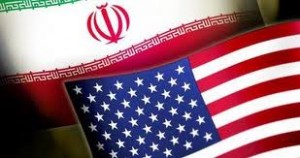 Iranian leaders have intensified debate on the pros and cons of direct talks with the United States in recent days, suggesting Tehran may be mulling whether to take President Obama up on the offer and under what conditions. The flurry of debate comes as arms control officials from Iran, Washington and five world powers are due to meet in Istanbul next week, to discuss a revised international nuclear proposal that Iranian negotiators�greeted favorably�in Kazakhstan last month.
Iranian leaders have intensified debate on the pros and cons of direct talks with the United States in recent days, suggesting Tehran may be mulling whether to take President Obama up on the offer and under what conditions. The flurry of debate comes as arms control officials from Iran, Washington and five world powers are due to meet in Istanbul next week, to discuss a revised international nuclear proposal that Iranian negotiators�greeted favorably�in Kazakhstan last month.Iranian Supreme Leader�s longtime foreign policy advisor Ali Akbar Velayati, former Iran nuclear negotiator�Hossan Rowhani, and two Iranian diplomats involved in 2007 talks with the United States on the issue of Iraq, have all weighed in on the merits of possible US-Iranian talks in recent days, in interviews with Iranian media and, notably, in�photos�of US and Iranian officials meeting in Iraq six years ago, newly published on the Supreme Leader�s�website.
�It is not the Supreme Leader�s view that Iran and the United States should not have negotiations and relations until the Day of Judgment,� Rowhani, former Iranian nuclear negotiator and a candidate in June�s presidential elections,�was cited�by Iranian media Thursday.
�If there is a situation where the country�s dignity and interests are..served, he will give permission for dialogue�as� thematic negotiations have been held between the two countries on issues related to Iraq, Afghanistan, and the nuclear (issue),� Rowhani continued.
The official website of the Supreme Leader this week�published��interviews with two Iranian officials authorized by Khamenei to negotiate with their American counterparts, the Iranian online news site�Iran�s View first reported�Thursday. The Leader�s website also�posted�several photos of American and Iranian officials meeting in Iraq, including then US Ambassador to Iraq Ryan Crocker (photo at right).
�Our red line, according to the Leader, was to negotiate only for the issue of Iraq and nothing else,� Hussein Amir Abdollahian, Iran�s Deputy Foreign Minister for Arab-African affairs who was involved in the Iraq talks with the Americans, said in an interview published on the Leader�s Farsi website, Iran�s View�wrote.
�If you ask me about the US� willingness to negotiate, as a person who has had the experience, I would say they are willing, but they are not intending to solve the problem,� Amir Abdollahian continued.
�We are not opposed to negotiations, but negotiations have conditions,� he added. �The Islamic Republic�s sovereignty should be maintained in any talks.�
However, Iran�s former envoy to Iraq Hassan Qassemi Qomi, who led Iran�s team in the 2007 Iraq talks, described his American interlocutors in an interview on Khamenei�s site as �not sincere, Irrational and inconsiderate.�
�The more they say they have done it in the past, the more they achieve three objectives: they de-dramatize talking to the US, prepare for a shift in that direction, OR a shift away from it on the basis of saying �We have no problem talking to the US � we�ve done it in the past � but the US is not offering anything right now,�� Iran analyst Trita Parsi, author of a book on Obama�s Iran diplomacy, A Single Role of the Dice, told the Back Channel Thursday.
Khamenei�s longtime confidant Velayati, who is also an Iranian presidential candidate, told Iranian journalists Wednesday the Supreme Leader has already explained his conditions for a channel to Washington. A US-educated doctor and former Iranian foreign minister, Velayati has previously denied rumors of being involved in secret talks with Washington.
�Velayati said that as long as Americans have not changed their behavior and methods of conduct with Iran, the stance of the Islamic Republic of Iran will remain unchanged,� IRNA�reported.
�The words and actions of American officials are irrational and unreasonable,� Khamenei�said�in a speech in Tehran last month. �They expect others to surrender to their irrational actions and coercion� but the Iranian nation, the Islamic Republic will not surrender.�
President Obama, speaking ahead of his first presidential trip to Israel next week, said he thinks there is at least a year before Iran could produce a nuclear weapon, but the diplomatic window may be shorter than that.
�Right now, we think it would take over a year or so for Iran to actually develop a nuclear weapon, but obviously we don�t want to cut it too close,� Obama told Israel�s Channel 2, Wednesday, the Associated Press�reported.
�So when I�m consulting with Bibi�my message to him will be the same as before,� Obama continued. �If we can resolve it diplomatically that is a more lasting solution. But if not I continue to keep all options on the table.�
By Al-Monitor
The Iran Project is not responsible for the content of quoted articles.










